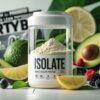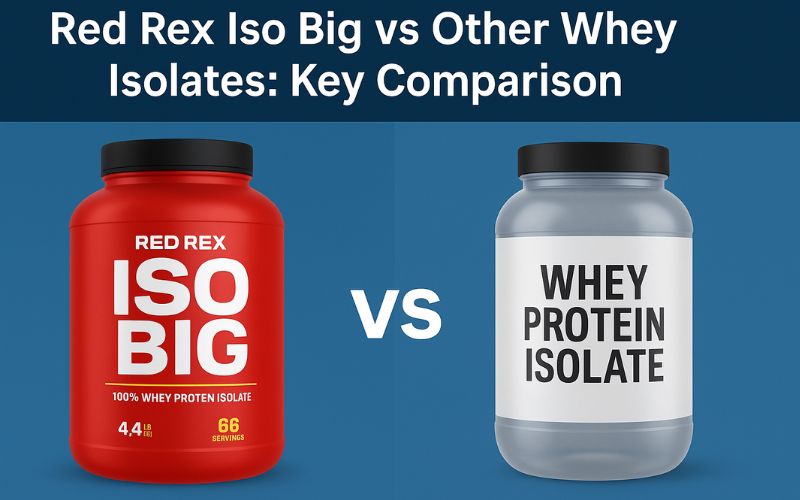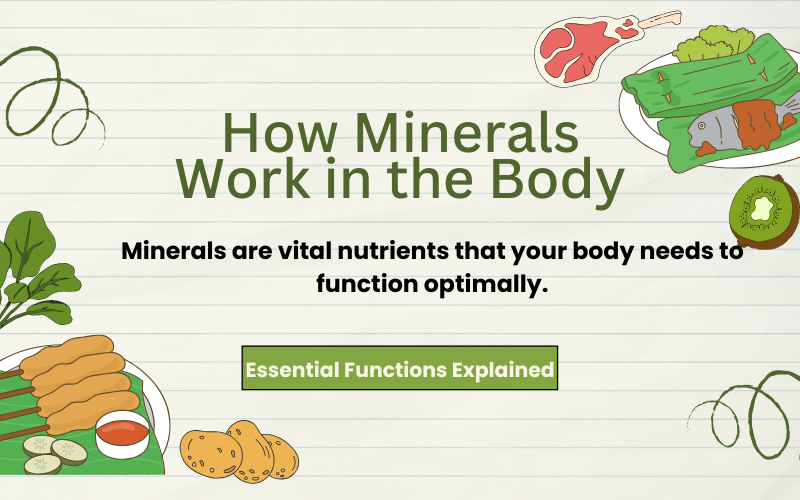Isolate Protein for Seniors: Supporting Healthy Aging
Isolate Protein Healthy Aging is a natural process, but maintaining good health and vitality as we grow older is essential. Nutrition plays a critical role in supporting healthy aging, and protein intake is particularly important for older adults. Among the various types of protein supplements, isolate protein stands out for its effectiveness and suitability for seniors. This article explores the benefits of isolate protein for seniors, focusing on its role in muscle preservation and overall health.
The Importance of Protein for Seniors
Protein is a vital macronutrient that supports various bodily functions, including tissue repair, hormone production, and immune system health. As we age, our protein requirements often increase due to age-related changes such as reduced muscle mass, slower metabolism, and decreased ability to absorb nutrients efficiently.
Challenges of Protein Intake in Older Adults
- Reduced Appetite: Many seniors experience a natural decline in appetite, making it challenging to meet daily protein requirements.
- Digestive Issues: Conditions such as lactose intolerance or digestive disorders can hinder protein absorption.
- Muscle Loss: Sarcopenia, or age-related muscle loss, can accelerate without adequate protein intake.
What is Isolate Protein?
Isolate protein is a highly refined form of protein derived from sources like whey, soy, or peas. It undergoes extensive processing to remove fats, carbohydrates, and lactose, resulting in a protein content of 90% or higher. This makes it an excellent option for seniors seeking a high-quality protein supplement.
Types of Isolate Protein
- Whey Protein Isolate: Derived from milk, it is rich in essential amino acids and rapidly absorbed by the body.
- Soy Protein Isolate: A plant-based option that is suitable for those with lactose intolerance or dietary restrictions.
- Pea Protein Isolate: Another plant-based choice, offering a hypoallergenic and easily digestible alternative.
Benefits of Isolate Protein for Seniors
1. Muscle Preservation and Strength
Muscle preservation is one of the most critical aspects of healthy aging. Isolate protein provides the essential amino acids, particularly leucine, that promote muscle protein synthesis. Regular consumption of isolate protein can help:
- Reduce the risk of sarcopenia.
- Enhance muscle repair and recovery after physical activity.
- Support strength and mobility in daily life.
The Role of Leucine in Muscle Maintenance
Leucine is a branched-chain amino acid (BCAA) that plays a pivotal role in muscle protein synthesis. Studies show that older adults require higher amounts of leucine to stimulate muscle growth compared to younger individuals. Whey protein isolate, in particular, is a rich source of leucine.
2. Bone Health Support
As bone density decreases with age, seniors become more susceptible to fractures and osteoporosis. Isolate protein contributes to bone health by:
- Enhancing calcium absorption.
- Providing nutrients that support bone strength and repair.
Protein’s Role in Reducing Fracture Risk
Adequate protein intake is associated with a lower risk of falls and fractures in older adults. Isolate protein, being easily digestible, ensures that seniors meet their daily protein needs without gastrointestinal discomfort.
3. Weight Management and Metabolism
Maintaining a healthy weight becomes increasingly challenging with age due to metabolic slowdowns. Isolate protein aids in weight management by:
- Promoting satiety and reducing hunger.
- Supporting lean muscle mass, which boosts metabolism.
Preventing Age-Related Weight Gain
By incorporating isolate protein into meals, seniors can control calorie intake while ensuring optimal nutrition. This helps prevent unhealthy weight gain and its associated risks, such as diabetes and cardiovascular disease.
4. Improved Immune Function
A robust immune system is crucial for seniors to ward off infections and illnesses. Protein supports the production of antibodies and immune cells. Isolate protein, with its high purity and bioavailability, ensures:
- Efficient repair of tissues.
- Strengthened immune defenses.
Amino Acids and Immunity
The amino acids in isolate protein, such as glutamine, play a direct role in supporting immune cell function. This is particularly beneficial for seniors recovering from illness or surgery.
How to Incorporate Isolate Protein into a Senior’s Diet
Choosing the Right Isolate Protein Supplement
- Check for Purity: Opt for supplements with minimal additives and a high protein content.
- Consider Dietary Needs: Choose lactose-free or plant-based options if needed.
- Flavor and Mixability: Look for flavors that appeal to personal preferences and ensure the powder dissolves easily in liquids.
Simple Ways to Add Isolate Protein
- Smoothies: Blend isolate protein with fruits, vegetables, and milk or plant-based milk for a nutritious snack.
- Oatmeal: Stir isolate protein powder into warm oatmeal for a protein-rich breakfast.
- Soups: Add unflavored isolate protein to soups or broths.
- Baked Goods: Incorporate protein powder into homemade muffins, pancakes, or energy bars.
Recommended Dosage for Seniors
Experts recommend that older adults consume 1.2 to 2.0 grams of protein per kilogram of body weight daily. For most seniors, a single serving of isolate protein (20-30 grams) is sufficient to meet a significant portion of their daily requirements.
Precautions and Considerations
While isolate protein is generally safe for most seniors, it is essential to consider the following:
Consult a Healthcare Professional
Before starting any supplement, seniors should consult their doctor or a registered dietitian, especially if they have:
- Kidney disease or impaired kidney function.
- Allergies to specific protein sources.
Avoid Overconsumption
Excessive protein intake can strain the kidneys and lead to dehydration. Stick to recommended serving sizes.
The Role of Exercise in Maximizing Benefits
Isolate protein works best when combined with regular physical activity. Resistance training, such as weightlifting or bodyweight exercises, enhances muscle preservation and strength in seniors. Pairing isolate protein with exercise amplifies its benefits by:
- Stimulating muscle growth.
- Improving overall fitness and mobility.
Creating a Balanced Routine
A balanced routine for seniors should include:
- Strength Training: Two to three times per week.
- Aerobic Exercise: Walking, swimming, or cycling for cardiovascular health.
- Flexibility and Balance Exercises: Yoga or tai chi to prevent falls and improve mobility.
Conclusion
Isolate protein is a powerful tool for supporting healthy aging in seniors. By providing high-quality, easily digestible protein, it aids in muscle preservation, bone health, weight management, and immune function. When combined with a balanced diet and regular exercise, isolate protein can help seniors maintain their vitality and independence well into their golden years.
Ready to take the next step toward healthier aging? Explore our premium selection of isolate protein products at Syner Nutrition and start your journey to a stronger, more vibrant you today!Isolate Protein for Seniors: Supporting Healthy Aging
Aging is a natural process, but maintaining good health and vitality as we grow older is essential. Nutrition plays a critical role in supporting healthy aging, and protein intake is particularly important for older adults. Among the various types of protein supplements, isolate protein stands out for its effectiveness and suitability for seniors. This article explores the benefits of isolate protein for seniors, focusing on its role in muscle preservation and overall health.
The Importance of Protein for Seniors
Protein is a vital macronutrient that supports various bodily functions, including tissue repair, hormone production, and immune system health. As we age, our protein requirements often increase due to age-related changes such as reduced muscle mass, slower metabolism, and decreased ability to absorb nutrients efficiently.
Challenges of Protein Intake in Older Adults
- Reduced Appetite: Many seniors experience a natural decline in appetite, making it challenging to meet daily protein requirements.
- Digestive Issues: Conditions such as lactose intolerance or digestive disorders can hinder protein absorption.
- Muscle Loss: Sarcopenia, or age-related muscle loss, can accelerate without adequate protein intake.
What is Isolate Protein?
Isolate protein is a highly refined form of protein derived from sources like whey, soy, or peas. It undergoes extensive processing to remove fats, carbohydrates, and lactose, resulting in a protein content of 90% or higher. This makes it an excellent option for seniors seeking a high-quality protein supplement.
Types of Isolate Protein
- Whey Protein Isolate: Derived from milk, it is rich in essential amino acids and rapidly absorbed by the body.
- Soy Protein Isolate: A plant-based option that is suitable for those with lactose intolerance or dietary restrictions.
- Pea Protein Isolate: Another plant-based choice, offering a hypoallergenic and easily digestible alternative.
Benefits of Isolate Protein for Seniors
1. Muscle Preservation and Strength
Muscle preservation is one of the most critical aspects of healthy aging. Isolate protein provides the essential amino acids, particularly leucine, that promote muscle protein synthesis. Regular consumption of isolate protein can help:
- Reduce the risk of sarcopenia.
- Enhance muscle repair and recovery after physical activity.
- Support strength and mobility in daily life.
The Role of Leucine in Muscle Maintenance
Leucine is a branched-chain amino acid (BCAA) that plays a pivotal role in muscle protein synthesis. Studies show that older adults require higher amounts of leucine to stimulate muscle growth compared to younger individuals. Whey protein isolate, in particular, is a rich source of leucine.
2. Bone Health Support
As bone density decreases with age, seniors become more susceptible to fractures and osteoporosis. Isolate protein contributes to bone health by:
- Enhancing calcium absorption.
- Providing nutrients that support bone strength and repair.
Protein’s Role in Reducing Fracture Risk
Adequate protein intake is associated with a lower risk of falls and fractures in older adults. Isolate protein, being easily digestible, ensures that seniors meet their daily protein needs without gastrointestinal discomfort.
3. Weight Management and Metabolism
Maintaining a healthy weight becomes increasingly challenging with age due to metabolic slowdowns. Isolate protein aids in weight management by:
- Promoting satiety and reducing hunger.
- Supporting lean muscle mass, which boosts metabolism.
Preventing Age-Related Weight Gain
By incorporating isolate protein into meals, seniors can control calorie intake while ensuring optimal nutrition. This helps prevent unhealthy weight gain and its associated risks, such as diabetes and cardiovascular disease.
4. Improved Immune Function
A robust immune system is crucial for seniors to ward off infections and illnesses. Protein supports the production of antibodies and immune cells. Isolate protein, with its high purity and bioavailability, ensures:
- Efficient repair of tissues.
- Strengthened immune defenses.
Amino Acids and Immunity
The amino acids in isolate protein, such as glutamine, play a direct role in supporting immune cell function. This is particularly beneficial for seniors recovering from illness or surgery.
How to Incorporate Isolate Protein into a Senior’s Diet
Choosing the Right Isolate Protein Supplement
- Check for Purity: Opt for supplements with minimal additives and a high protein content.
- Consider Dietary Needs: Choose lactose-free or plant-based options if needed.
- Flavor and Mixability: Look for flavors that appeal to personal preferences and ensure the powder dissolves easily in liquids.
Simple Ways to Add Isolate Protein
- Smoothies: Blend isolate protein with fruits, vegetables, and milk or plant-based milk for a nutritious snack.
- Oatmeal: Stir isolate protein powder into warm oatmeal for a protein-rich breakfast.
- Soups: Add unflavored isolate protein to soups or broths.
- Baked Goods: Incorporate protein powder into homemade muffins, pancakes, or energy bars.
Recommended Dosage for Seniors
Experts recommend that older adults consume 1.2 to 2.0 grams of protein per kilogram of body weight daily. For most seniors, a single serving of isolate protein (20-30 grams) is sufficient to meet a significant portion of their daily requirements.
Precautions and Considerations
While isolate protein is generally safe for most seniors, it is essential to consider the following:
Consult a Healthcare Professional
Before starting any supplement, seniors should consult their doctor or a registered dietitian, especially if they have:
- Kidney disease or impaired kidney function.
- Allergies to specific protein sources.
Avoid Overconsumption
Excessive protein intake can strain the kidneys and lead to dehydration. Stick to recommended serving sizes.
The Role of Exercise in Maximizing Benefits
Isolate protein works best when combined with regular physical activity. Resistance training, such as weightlifting or bodyweight exercises, enhances muscle preservation and strength in seniors. Pairing isolate protein with exercise amplifies its benefits by:
- Stimulating muscle growth.
- Improving overall fitness and mobility.
Creating a Balanced Routine
A balanced routine for seniors should include:
- Strength Training: Two to three times per week.
- Aerobic Exercise: Walking, swimming, or cycling for cardiovascular health.
- Flexibility and Balance Exercises: Yoga or tai chi to prevent falls and improve mobility.
Conclusion
Isolate protein is a powerful tool for supporting healthy aging in seniors. By providing high-quality, easily digestible protein, it aids in muscle preservation, bone health, weight management, and immune function. When combined with a balanced diet and regular exercise, isolate protein can help seniors maintain their vitality and independence well into their golden years.
Ready to take the next step toward healthier aging? Explore our premium selection of isolate protein products at Syner Nutrition and start your journey to a stronger, more vibrant you today!
1. Why is protein important for seniors?
Answer:
Protein is essential for seniors because it supports muscle preservation, bone health, immune function, and overall energy. As we age, we naturally lose muscle mass and may experience slower metabolism, making it crucial to consume adequate protein to maintain strength, mobility, and a healthy lifestyle.
2. What makes isolate protein better for seniors compared to other protein supplements?
Answer:
Isolate protein is highly refined, containing 90% or more pure protein with minimal fats, carbs, and lactose. This makes it easier to digest and absorb, especially for seniors with sensitive stomachs or lactose intolerance. It also provides essential amino acids, like leucine, that are critical for muscle preservation and repair.
3. How much isolate protein should seniors consume daily?
Answer:
Seniors should aim for 1.2 to 2.0 grams of protein per kilogram of body weight daily, depending on their activity levels and health needs. A single serving of isolate protein (20-30 grams) can help meet a significant portion of their daily protein requirements.
4. Can seniors use isolate protein if they have dietary restrictions or health conditions?
Answer:
Yes, isolate protein is suitable for most seniors, including those with lactose intolerance or specific dietary needs, as there are plant-based options like soy or pea protein isolate. However, seniors with kidney issues or other medical conditions should consult a healthcare professional before adding protein supplements to their diet.
5. How can seniors incorporate isolate protein into their meals?
Answer:
Seniors can add isolate protein to smoothies, oatmeal, soups, or baked goods for an easy and nutritious boost. Unflavored isolate protein can also be mixed into broths or mashed vegetables, ensuring they get their protein intake without altering the food’s natural taste.









Add comment